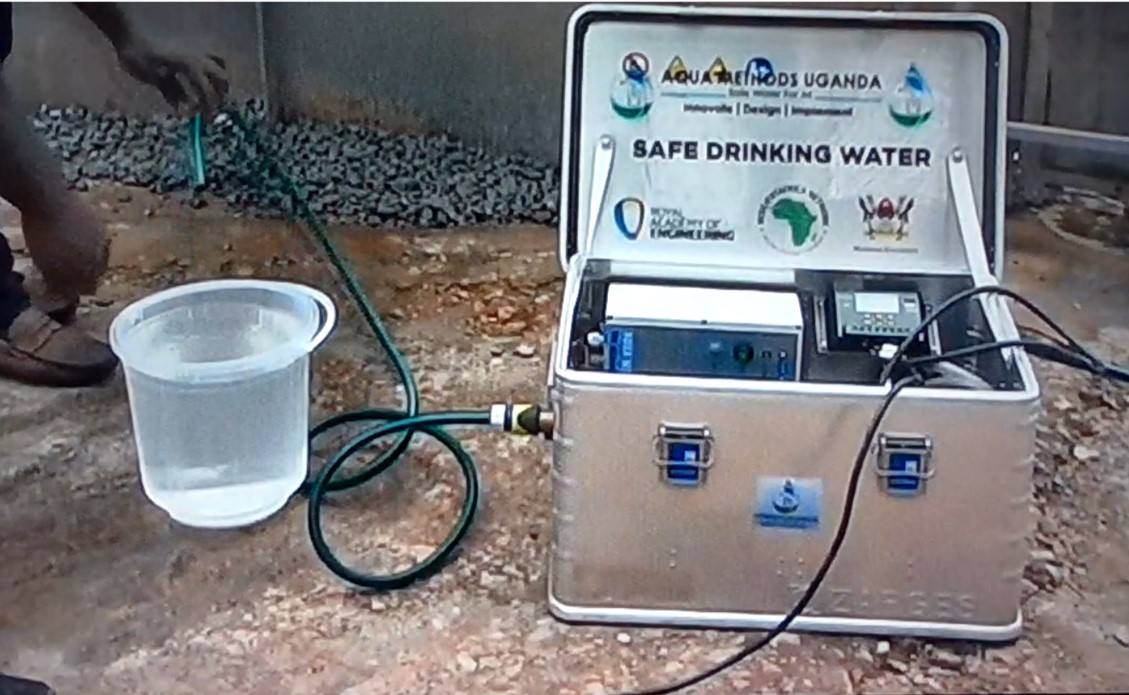Timothy Kayondo interviewed for ‘People fixing the world’

Young inventor Timothy Kayondo met Professor Leighton when he held the 2nd Global-NAMRIP conference in Kampala, and was one fo a number of young people who consequently became heavily involved in the NAMRIP mission. He was recently interviewed by the BBC.
Global-NAMRIP member Timothy Kayondo was interviewed by the BBC World Service for the show ‘People fixing the world’, the episode (broadcast 18 January 2022) entitled ‘Making clean water with rubbish’.
The BBC describes the episode as follows:
“A Ugandan chemist has found a way to use old cattle bones and food waste to make clean water. Timothy Kayondo turns the rubbish into activated carbon, which he uses to produce water purifiers. They’re being used in schools and hospitals. It is estimated that one in 10 people on the planet do not have a basic level of access to clean water. In this programme we find out about Timothy’s work and discover more ways people around the world are getting access to safe drinking water.”
The programme credits are Jo Mathys (Presenter), Mercy Juma, Celestina Olulode and Tom Colls (Reporters), and Daniel Gordon and Tom Colls (Producers).
The episode is available for a year at: https://www.bbc.co.uk/programmes/p0bhr7kn
Timothy Kayondo met Professor Leighton in March 2019 at Global-NAMRIP’s conference in Uganda, when he visited Kampala to co-host the conference with Makerere University. Subsequently, Professor Leighton sponsored Timothy and his team for a number of ventures, notably to enter into the competition for the Africa Prize for Engineering Innovation, run by the Royal Academy of Engineering. Now Timothy’s company, ‘Aqua Methods Uganda’, is gaining acclaim internationally for its work in Uganda, producing clean water using readily available technology and agricultural waste for the carbon filters. The devices are currently implemented in health centre and refugee camps within remote areas of Uganda.